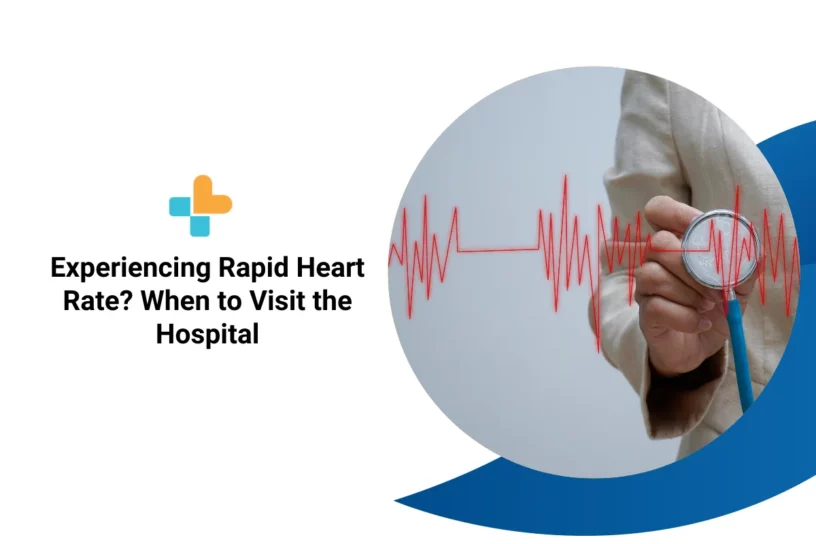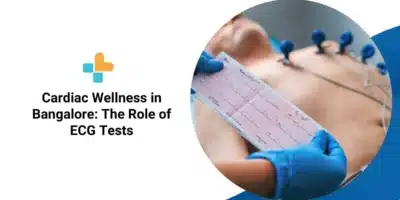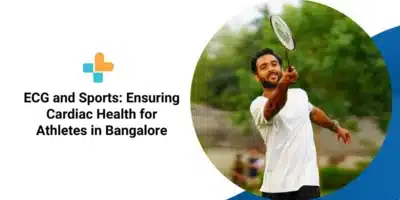Have you ever noticed your heart racing fast? Whether it’s an adrenaline rush, stress, excitement, or a steamy workout, we all experience increased heart rates. But what if you’re not experiencing any of these yet still have a faster heart rate?
A rapid heart rate could signal an underlying medical issue like dehydration or hyperthyroidism. In some cases, it could also be a heart attack symptom.
If ignored for long, a faster heart rate can result in life-threatening situations. Read on to learn everything about rapid heart rate.
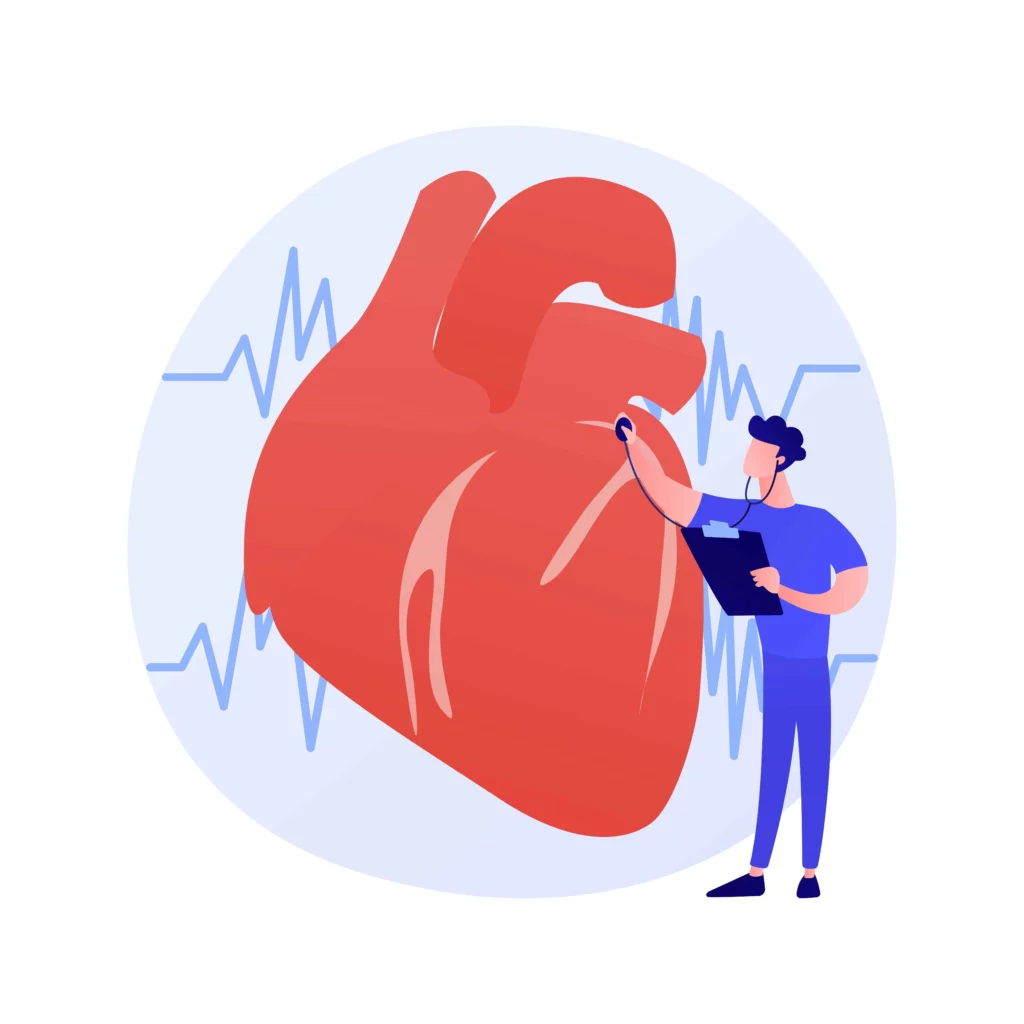
What is the Normal Heart Rate?
A normal heart rate ranges between 60 and 100 beats per minute (BPM) for adults.
However, age, fitness level, and overall health can influence an individual’s baseline heart rate.
When to Go to the Hospital for Rapid Heart Rate?
You should go to the hospital for a rapid heart rate if you experience it along with other symptoms. If you experience a rapid heart rate accompanied by severe chest pain, difficulty breathing, dizziness, fainting, or any other concerning symptoms, it merits an immediate visit to the hospital.
What Causes a High Pulse Rate While Resting?
Certain health issues like anxiety and stress, reaction to medications, thyroid disorders, and heart conditions can cause a high pulse rate.
Let’s explore each of these.
1. Anxiety and Stress

Intense emotions can trigger an increase in heart rate. If you notice a consistently elevated pulse rate during calm periods, it’s worth considering stress and anxiety as potential factors.
2. Medications and Substances
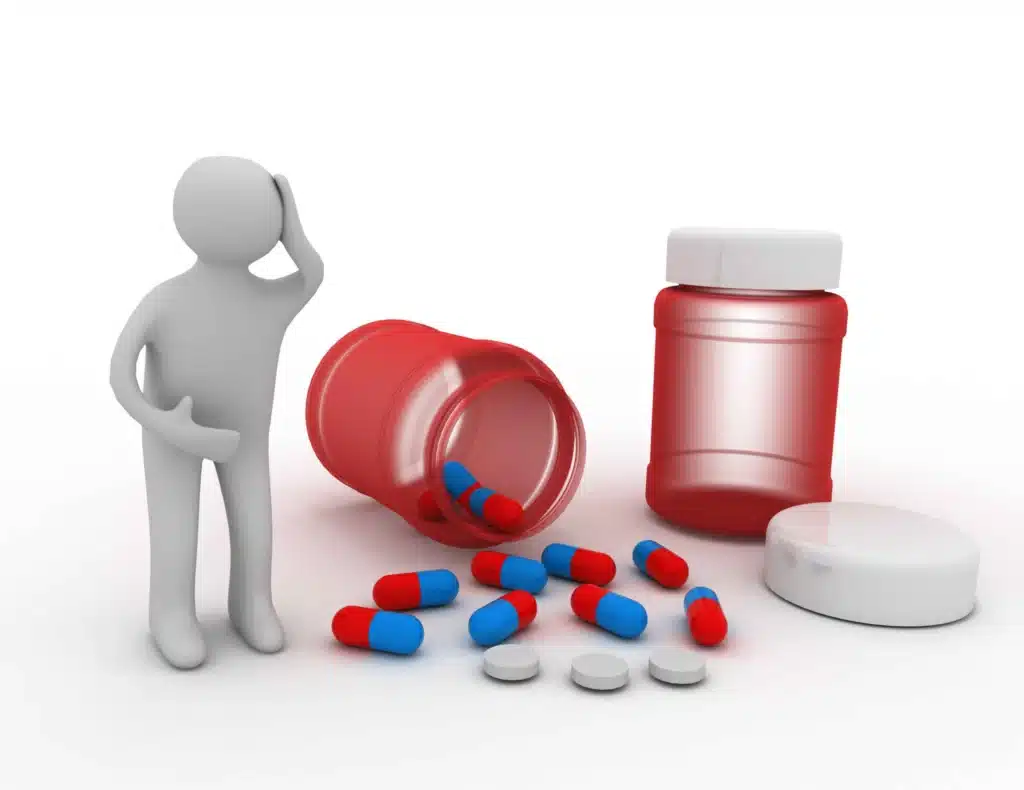
Certain medications like stimulants or decongestants and substances like caffeine or nicotine can lead to a faster heart rate.
3. Thyroid Disorders
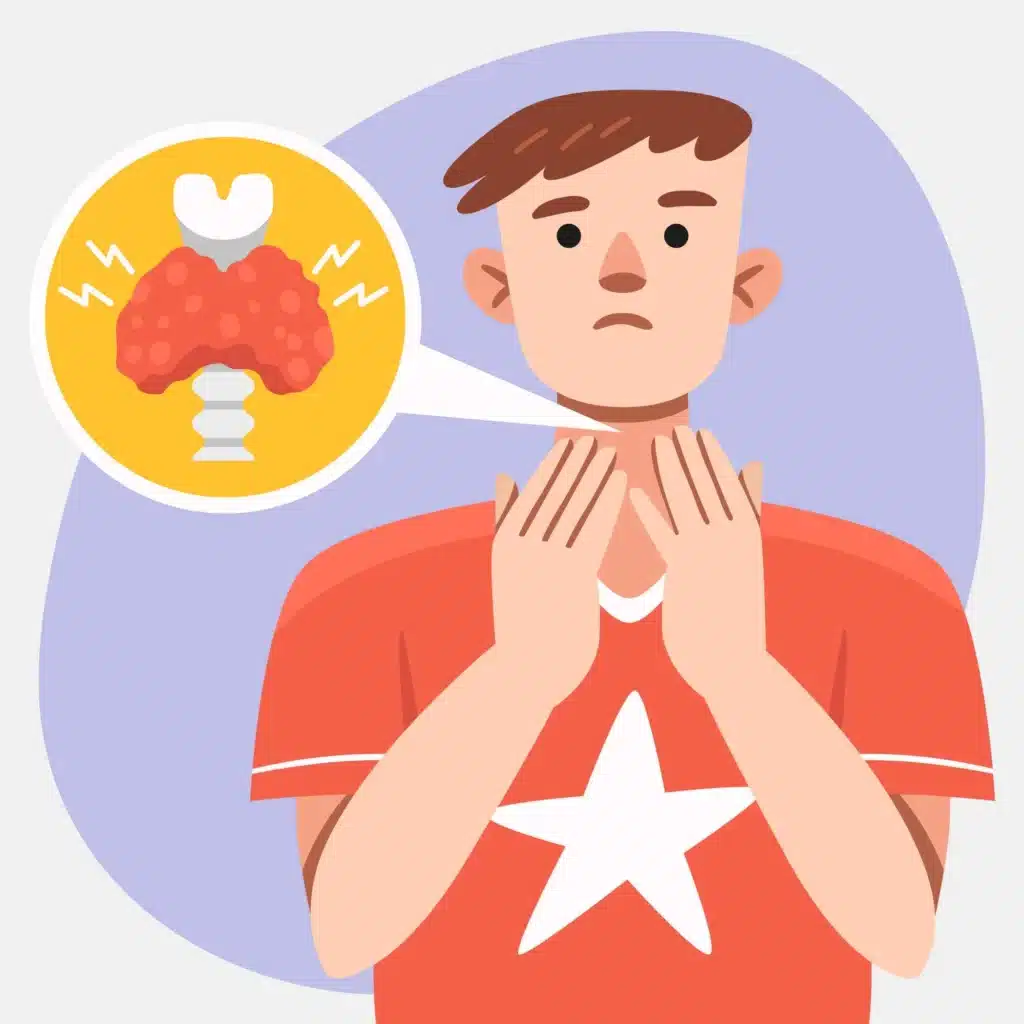
Hyperthyroidism (characterized by an overactive thyroid gland) can lead to an increase in heart rate.
If you experience weight loss, irritability, or fatigue along with a rapid heart rate, it’s important to consult a healthcare professional because it might be a sign of hyperthyroidism.
4. Heart Conditions
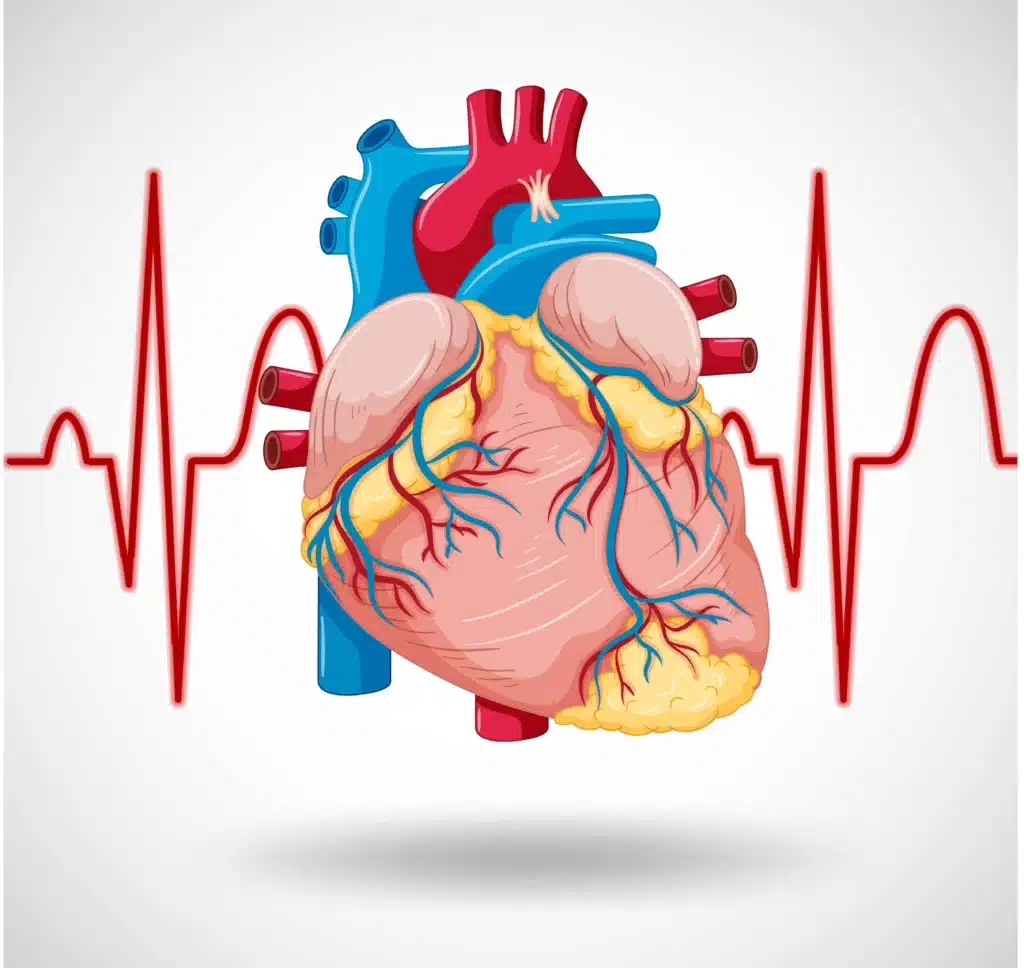
Heart conditions, such as arrhythmias or valve disorders, can cause an elevated pulse rate.
Different Kinds of Heart Rate You Might Experience
There are several types of abnormal heart rates you might experience.
1. Tachycardia
Tachycardia is when the heart rate exceeds 100 BPM. It’s caused by various factors, including underlying medical conditions or abnormal electrical impulses in the heart.
2. Bradycardia
Bradycardia refers to the heart rate falling below 60 BPM. It can result from certain medications, heart abnormalities, or a malfunctioning electrical system within the heart.
3. Atrial Fibrillation
In the case of atrial fibrillation, you may experience irregular and rapid heartbeats. This condition aids in the risk of stroke and other complications.
4. Supraventricular Tachycardia (SVT)
SVT is a rapid heart rate originating above the ventricles. It can lead to palpitations, shortness of breath, and dizziness.
Rapid Heart Rate: When is it Normal?
In certain situations, a faster heart rate can be considered normal.
During physical activity, emotional excitement, or moments of stress, your heart rate naturally increases as your body requires more oxygen and nutrients.
How Do You Calm Your Heart from Beating Fast?
You can calm your heart from beating fast by taking deep breaths, practising relaxation techniques, staying hydrated, and avoiding stimulants.
- Deep breathing: Practise deep, slow breaths, inhaling through your nose and exhaling through your mouth.
- Relaxation techniques: Try meditating for a while. You could do yoga or listen to some calm music.
- Stay hydrated: Ensure you drink an adequate amount of water throughout the day to maintain hydration levels.
- Avoid stimulants: Limit your consumption of caffeine, nicotine, and other stimulants, as they can contribute to a faster heart rate.
Measure Heart Rate the Right Way
Here’s the correct way to measure your heart rate.
- Find your pulse: Place your thumb on the wrist with the other fingers on the back. You can also place your fingers on your neck below the jawline.
- Count the beats: Using a timer or a watch with a second hand, count the number of beats you feel within a 60-second timeframe. Alternatively, count the beats for 15 seconds and multiply the number by four to get your heart rate per minute.
What Might Happen if You Ignore a Faster Heart Rate?
If you ignore a faster heart rate, it might lead to serious problems like blood clots, heart failure, fainting, or cardiac arrest, depending on the nature of your condition.
Listen to Your Heart: Consult Expert Heart Specialists at Ayu Health
While occasional episodes of a faster heart rate may not be alarming, it’s important to pay attention to any persistent changes and seek medical advice when necessary.
Also Read : How to Check Your Heart Health
At Ayu Health, our expert team of cardiologists can diagnose the problem and help you with a faster heart rate.
Our state-of-the-art facility uses the latest technology & well-equipped staff to provide quality healthcare to our discerning patients.
Contact us at +91 6366-100-800 to book a consultation with our doctors, or visit our website for more information.
Our Hospital Locations
Cardiac Surgery Hospitals in Chandigarh | Cardiac Surgery Hospitals in Bangalore | Cardiac Surgery Hospitals in Jaipur | Cardiac Surgery Hospitals in NCR | Cardiac Surgery Hospitals in Hyderabad
Our Doctors
Cardiac Surgery Doctors in Chandigarh | Cardiac Surgery Doctors in Bangalore | Cardiac Surgery Doctors in Jaipur | Cardiac Surgery Doctors in NCR | Cardiac Surgery Doctors in Hyderabad
References:
https://www.ncbi.nlm.nih.gov/pmc/articles/PMC3751677/
https://www.bhf.org.uk/informationsupport/heart-matters-magazine/medical/ask-the-experts/pulse-rate
https://ayu.health/blog/how-stress-affects-the-heart/
https://www.health.harvard.edu/healthbeat/hyperthyroidism-and-your-heart
https://www.webmd.com/heart-disease/atrial-fibrillation/heart-disease-abnormal-heart-rhythm
https://ayu.health/blog/difference-between-tachycardia-and-bradycardia/
About the Author
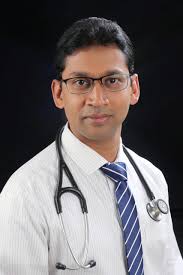
Dr. Magesh Balakrishnan
Dr. Magesh Balakrishnan is a renowned cardiologist currently practicing at Ayu Health, Bangalore.
He has 16 years of experience in this field. He has excellent skills in performing all cardiac diagnostic procedures/ tests. He has performed emergency and elective angiographies and angioplasties, device implantation (Pacemaker, AICD & CRT)

